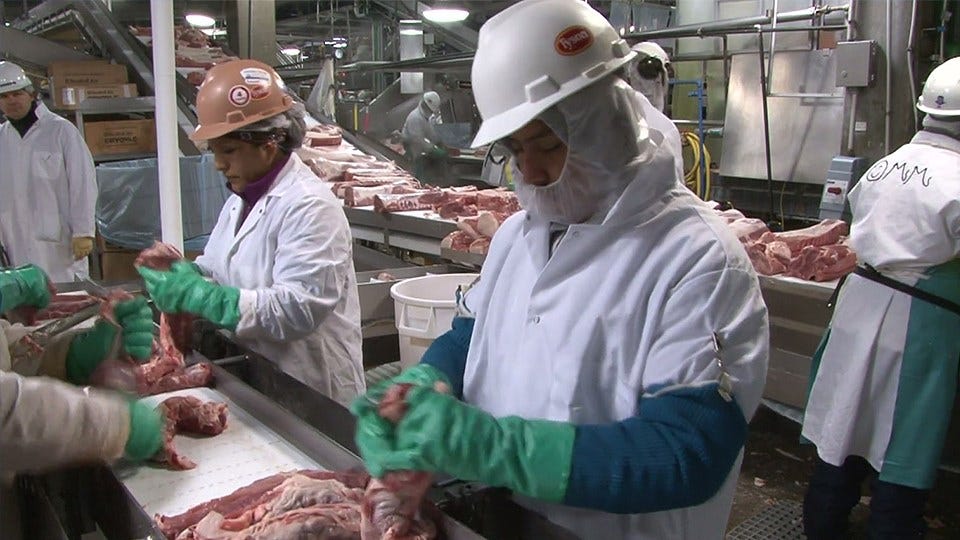Study: COVID Cost Indiana Food Sector $500M
 Tyson Fresh Meats in Logansport shut down operations for several days due to COVID-19. (photo courtesy: Tyson Foods Inc.)
Tyson Fresh Meats in Logansport shut down operations for several days due to COVID-19. (photo courtesy: Tyson Foods Inc.)
Subscriber Benefit
As a subscriber you can listen to articles at work, in the car, or while you work out. Subscribe NowA report commissioned by AgriNovus Indiana, the initiative focused on growing Indiana’s agbioscience economy, shows aggregate losses from the pandemic cost Indiana food producers approximately $500 million.
Researchers analyzed losses in five key agricultural products: corn, soybeans, hogs, dairy and eggs.
The study, conducted by researchers at Purdue University and agribusiness consulting firm EY-Parthenon, also highlighted the food chain going through “disruption and evolution at the same time.”
In an interview with Inside INdiana Business, Jayson Lusk, co-author of the research and head of the Agricultural Economics Department at Purdue University, said COVID-19 significantly impacted Indiana farmers.
“People need to know that COVID was very costly for agricultural producers, but we learned a lot,” said Lusk. “I think there are some real opportunities going forward for Indiana, Indiana is investing a lot in innovation in agriculture.”
Lusk says some of the opportunities are in automation and processing that will help better position food processors going forward, “to make sure we’re not as prone to disease as we were this time around.”
One of the hardest-hit ag industries in Indiana was the pork sector, especially as processors like Tyson Fresh Meats, a subsidiary of food giant Tyson Foods Inc. (NYSE: TSN) voluntarily stopped production at its plant in Logansport as it dealt with employees who tested positive for the disease.
“Certainly the impacts to the hog sector were really pronounced and have to be up there with any other losses. In addition to the dollars and cents of it, there was just a lot of hardship and turmoil because producers had hogs in their barns that needed a place to go,” explained Lusk. “Workers that were concerned about their jobs and…their communities. I think the meatpacking sector had some of the most significant disruptions.”
The research report, “Resilience through Disruption,” provides several recommendations to improve the resilience of the multi-billion-dollar business sector.
Among the recommendations is to increase collaboration.
“So people understand where their sourcing is coming from, they can collaborate a little better,” said Lusk. “If we have a situation like this again, the people that are buying from suppliers have a little better sense of where they’re coming from, how they’re interconnected, and what the challenges may be.”
Lusk says the increasing complexity in food retail continues to grow. He says in the 1960s the average grocery store offered 6,000 products, but today, that number is more than 33,000.
“Every one of those products has a supply chain. And they’re interconnected in different ways and with different agricultural producers. I think that’s one of the things I think it’s important to come away from this is how complex our supply chain is,” said Lusk.
While complex, Lusk also says the system is not broken. But it could use some tweaks.
“There was a period of April and May where we had some real troubles in our meatpacking. But overall, I think our supply chain dealt with some really unexpected and large shocks in a pretty good way. I think what we’re articulating in this report is it’s not perfect. Just because we responded in a positive way doesn’t mean we can’t be better.”
Click here to view the full study.
Study co-author and Purdue agricultural economist Jayson Lusk said there are lessons to be learned about COVID’s impact on Indiana ag.
